#nonfiction
Text
722 notes
·
View notes
Text
379 notes
·
View notes
Text
Extremely late, completely unnecessary opinion of the Watcher situation, (2024-04-24)
So this is a relatively belated post — several days after the initial “Goodbye Youtube” and one day after the “An Update” videos — and surely by this point there are more interesting/insightful op-eds (both in written form and video form, especially penguinz0’s fairly objective POV as, essentially, a YouTube expert) but there is something about the Watcher situation that made my brain itch. Thus, I wanted to write about it in order to make sense of it all as well as get into a philosophy that seems to be haunting me in recent years and which I think applies greatly here.
This may seem completely out of left field considering 1) definitely not fanfiction and 2) about Watcher Entertainment, a YouTube channel which—as far as this tumblr is concerned—I’ve not engaged with whatsoever, but I don’t know where else I would put this, and weirdly enough I think the general tumblr response to this whole predicament is maybe the… if not objective… then at least, most thoughtful?—or, perhaps, least immediately reactive?—amongst the various social media platforms, that I think some people might appreciate this anyway.
In terms of my relevant background: I majored in Management Science (which is just a fancy way of saying Economics + Business + Accounting because they are, weirdly enough, separate things) and minored in Film Studies in school, I am currently working in the stage tech industry (which, I know, is obviously different from film/video industry), and I like to think I am a fan/consumer of a wide variety of independent creators, some of whom I am lucky enough to be able to afford being a patron/subscriber. I won’t go into all of them—because it is a lot—but there are four in particular whose business models I want to analyze in comparison to Watcher’s admitted blunder:
A) RocketJump (known for Video Game High School and Anime Crimes Division; the core group which turned into the podcast Story Break, then became Dungeons and Daddies)
B) Dropout (formerly College Humor, we’ll get into their discography later)
C) Drawfee (previously an offshoot of College Humor, now fully independent)
D) Corridor Digital (used to be mostly behind the scenes of how VFX studios work, have since become a mostly original content creator)
I will say, right off the bat, I am a patron of Drawfee as well as Dungeons and Daddies, and I am a subscriber to Dropout. I am not subscribed to Corridor Digital’s streamer, which I will get into why later. I understand that being able to sustain those two patronages and one subscription is a luxury that not everyone can afford and so my point of view is already skewed by being such a person who could theoretically afford another streaming service if I so chose. I also acknowledge that many fans of Watcher are not in similarly financially secure places as I am and that regardless of the business model, any monetization that comes from fans would have been a rough ask. However, I wanted to go into this essay in a way that accepts Watcher’s statement—that they needed more funding—in relatively good faith rather than assuming the worst (although that is another point I’ll get into later, largely related to the philosophy I brought up earlier.)
All four of the above listed content creators started or, at least, hit their stride on YouTube:
RocketJump and College Humor were, if not household names, then the digital equivalent of it in the “early days of YouTube.” They were part of the wave of content creators that made YouTube seem less like a bunch of eccentrics with cameras making videos on the side and more like a viable way to support yourself/your team with the art you create.
RocketJump’s Video Game High School went from short (less than 10 minutes) minimal location episodes in season one, to 30 minute plus episodes with full on fight scenes and car explosions by season three thanks to a Monster Energy brand deal. They also had two seasons of Anime Crimes Division, a literal TV quality show, thanks to a Crunchy Roll sponsorship. Unfortunately, RocketJump shut down not long after (their videos are still up on YouTube but they obviously don’t add anything new) but the core creative team behind that have been involved in several projects outside of YouTube (Dimension 404 on Hulu being one of the biggest ones so far) including the podcast Story Break (part of the Maximum Fun network) and now the independent podcast Dungeons and Daddies, the episodes of the main campaigns which are free with ads or, for patrons, ad-less along with additional mini-campaigns and other benefits.
I will say, during RocketJump’s decline, they did try their best to keep going. The partnerships with Monster Energy and Crunchy Roll were the big swings to get the funding to make those TV quality shows they wanted. I believe they lucked out with those brands in particular, or, at least, those brands didn’t seem to inhibit the creative process or ask too much of them that it felt like “selling out” but I also don’t have insight into why they didn’t pursue this model of, essentially, very weird but interesting season long commercials. Maybe they just couldn't find the right brands or maybe they did feel like it was too stifling. Regardless, before they shut down completely, they did also downsize—moving out of the actual city of Los Angeles over to Buena Park. Which is in Los Angeles county, and basically counts as LA still, but is way cheaper than literal Hollywood real estate. (I should have added to my relevant background that I’m born and raised LA county, and have relatives and friends in the film/movie industry, so trust me when I say literal Hollywood/city of Los Angeles is so overrated and unnecessarily expensive. There is a reason why LA traffic is the worst and it’s because everyone is commuting INTO the city. Respectfully and with affection, no one should live there. No one’s start up should be located there.) Obviously the downsizing didn’t necessarily work for RocketJump, but they also didn’t have multiple successful revenue streams the way that Watcher currently does.
In contrast, College Humor was acquired by InterActiveCorp and was turned into CH Media which was three pronged: College Humor, Drawfee, and Dorkly. In 2018 they made Dropout, which had exclusive content separate from their YouTube videos which involved all three prongs. Then some financial shenanigans happened early 2020—IAC withdrew their funding—and there were a bunch of layoffs right before the pandemic which extremely sucked. It has been stated by multiple people involved that it was basically a miracle that Dropout survived through all of that, but there were definitely some sacrifices along the way to make that happen. Currently, Dropout seems to be thriving with mostly exclusive content with the occasional “first episode of a season” posted to YouTube, OR if Dimension 20 is doing a “sequel season” in an already established campaign they will put the entirety of the previous season on YouTube.
IAC withdrawing their funding did put CH Media in a bind. They had to layoff a lot of people right before pandemic and, understandably, a lot of trauma was had. There were also weird issues with who controlled certain IPs/brands/digital assets (I mostly come at this from a Drawfee POV, it took several years for them to own the Drawga series and be allowed to host all of the episodes on their YouTube, and there was also something about the sound file for their opening animation?) but mainly the difference is what kind of content they generate. Originally Dropout had multiple scripted shows with high budgets and pretty cool effects/animations/stunts (Troopers, Kingpin Katie, Gods of Food, Ultramechatron Team Go!, Cartoon Hell, and WTF 101) whereas now almost all of their shows are variations of improv comedians being put into different scenarios or given different prompts. I’m not just talking about Game Changer and Make Some Noise, because Dimension 20 and Um, Actually also technically fall under that description as well. Which is not to say that these shows are worse than the scripted shows—I subscribe to Dropout, so clearly I’m a fan of their current shows—and the budgets for them have since increased to resemble, if not match, those early shows, but it is a noticeable shift in their content creation strategy as a response to the lack of IAC funding. And I will say: Dropout releases at least three videos a week if not more and at least two of those are long form at 30 minutes plus (Dimension 20 being the longest, of course.)
So, these first two business models are not really the most applicable to Watcher Entertainment considering their origin was to get away from Buzzfeed—they’re probably not keen to be partnered with or purchased by a larger company—but there are some aspects to both that I believe are valuable in at least showing the strategy in how these former YouTube creators could successfully extract themselves from YouTube or how they still utilize YouTube even if it is not their main hosting platform or revenue stream.
Then there is Drawfee and Corridor Digital, both of whom are currently—if not primarily—on YouTube, whose situations are more comparable to what I believe are Watcher’s goals.
Drawfee had to rebuild themselves like a phoenix from the ashes of the CH Media layoff during the beginning/worst of the pandemic. Side note: I’m happy that Nathan (one of the four main artists of the current Drawfee team) at least has forgiven(? or let bygones be bygones) Dropout enough to be on an episode of Game Changer (although I will say that this happened after Drawga was “returned” to Drawfee, and after Dropout officially split from College Humor as a brand.) All that being said, Drawfee was a team of four artists plus their editor who wanted to stick together but basically had all of their support system taken away from them. They took a bit of a break to assess their goals and options, announced a patreon with several tiers with great perks, and stuck to their upload schedule. In addition to two videos a week, they also stream on Twitch weekly, have a patron only stream once a month, and a draw class (for one of the higher tiers) once month. After asking their patrons on the relevant tiers if they were okay with it, they began releasing the patron only stream and the draw class to the general public for free after a month. The patreon perks also include things like merch discount codes, high quality PNGs of the final rendered art, access to the draw class with live interaction/critique, and a commission from the artist of your choice. The only “ads” they run are for their own patreon and merch store and, even then, they’re usually at the end of the videos with a credit scroll of the patron names during their exit banter.
Admittedly, they only have MAYBE eight employees—that’s including their video editor(s?) and their discord mod(s?)—with the main four artists doubling/tripling up duties as additional video editors, CFO, and marketing/merch leads. It’s a very streamlined crew and their production costs are not very high since it’s mostly screen recording of their drawings with their audio recording overlayed onto that footage. Although the video editors do sometimes have clever cuts to relevant images depending on their vamping. Sometimes they will have a guest artist but, again, since it’s screen and audio recordings, there’s no travel/housing costs. So, very minimal expenses due to low production costs and small crew but, again, their only revenue source is the patreon/merch, they don’t do outside ads and they very rarely do live shows.
Corridor Digital is, I think, the most applicable to what Watcher would ideally do, which I suppose is somewhat ironic for this essay in particular considering they’re the only one of the four that I don’t financially support. They have two YouTube channels: their main one being where they show the “final product” videos, but I believe their Corridor Crew channel which started primarily as behind the scenes type of videos is where most of their views come from. Especially their React series (VFX artists, Stuntmen, and Animators React etc.) On Corridor Crew they usually upload two videos a week — one which is a React and the other which goes into fun projects/challenges (involving VFX or not) or using VFX to explain scientific concepts — as well as the first episodes of their exclusive content on their streamer. Also behind that paywall are longer and ad-less versions of the videos on YouTube. They also have merch. All of them have merch, I don’t know why I’m stating that. They don’t have a patreon as far as I know, but I also don’t know if their subscription to their website comes with similar perks like discounted merch or something similar.
Anyway, their studio seems to be about 15 to 20 people — not all of them are VFX artists, of course. I believe they have higher equipment costs than Watcher since, understandably, Corridor has to be on the cutting edge of video editing technology. They do occasionally travel for shoots, but it doesn’t require big teams, and that’s only when the local locations available to them don’t match the requirements for the “final product” videos. Otherwise most of their videos are set in the studio or in the alleyway outside their studio in Los Angeles (the city itself, not just the greater county, though they are in a rougher and thus probably cheaper part of Los Angeles). I personally don’t subscribe to their website primarily because their exclusive shows don’t appeal to me—either they’re too technical or a little too dry; to be fair, most of them are VFX artists first before they are performers—and I don’t particularly feel the need to see the extended cuts of the videos uploaded on YouTube. Also I sometimes get a little bummed out by their lack of diversity.
All of this to say, from these four different business models, a bespoke Frankenstein business model for Watcher could be cobbled together. But also, even with that bespoke Frankenstein, there are some changes that Watcher would have to make: primarily their upload schedule. As of right now, I think they do MAYBE one video a week if not, perhaps, one video every TWO weeks. If they want a monthly subscription model, their rate of content generation would ideally be higher to double/quadruple their current upload rate. Obviously they want to create videos with higher production value, but at that rate of generation, something’s got to give: supplement their TV quality shows with either a behind the scenes type series or an increase of “we get four episodes out of Shane and Ryan get increasingly drunk in someone’s backyard” or something similar. Leaning into shows like Worth A Shot (the first season in which Ricky Wang makes cocktails based on a random ingredient, the second season threw in some competitive aspects which I didn’t really find necessary) or the Beatdown which has relatively low production costs (no travel, one location, maybe two cameras at most therefore smaller crew requirements) but a higher polished look. Otherwise, for a separate streaming subscription service, 2-4 videos a month is not going to cut it.
As of right now they probably can’t back out of the separate streaming subscription service because those set ups usually require some level of contract/paying for servers for the website and whatever is hosting their videos for a set amount of time. However, what really strikes me is that I literally didn’t know they had a patreon until I scrolled through the comments of the first Goodbye Youtube video. Maybe it’s been linked "tactfully" in the descriptions of videos, but considering they claim to be lacking in funds, the fact that they weren’t plugging their patreon at the end of every video is not just strange, but also irresponsible considering they do have 25 employees that they don’t want to layoff.
Additionally, I understand artists needing to be in a space that promotes creativity, but there are cheaper places that must be comparable that aren’t in literal Hollywood. It’s an unnecessary expense. On top of that, other people have already brought up that it was fairly crass to introduce this paywall, attributing it to the increased production costs, when the next planned “new series” is a reboot of an old Buzzfeed series in which people travel and eat expensive food. I’m not even talking about the personal expenses of Steven, Shane, and Ryan; what kind of car they drive or the cost of their wedding venue doesn’t matter on a business model basis.
But getting back to the patreon: again, I literally didn’t know they had one. I’m looking over their tiers— they have $5, $10, $25, and $100 — and for the most part they seem okay, although I think they have more to offer that wouldn’t necessarily cost them more. Ie, something that has baffled me for a while: the fact they don’t sell the mp3s of the Puppet History songs; they already exist and it doesn’t cost them anything additional because they don’t need to put it on physical media. Or maybe they do and they’re not marketing it similarly to how they weren’t overtly marketing their patreon?
And, okay, maybe they didn’t want to seem desperate — in the early days of Dropout and independent Drawfee, they both were very blatant in getting people to subscribe/join their patreon. As they should be. Desperation maybe doesn’t look cool and sexy, but it is earnest in a way that conveys equal effort that fans who can afford it would want to see. The fact that we weren’t getting rotating ten second clips of Steven, Shane, and Ryan asking people to join the patreon at the end of every video — even if its the same clip every three videos — is wild. And yes, the $25 tier includes a shoutout every 3 months on Watcher Weekly+ (which I don't quite understand what that is,) but the fact that they weren’t doing a quick post movie credits scroll of all the patreon names is, again, wild. Once you have that initial list, it’s not too difficult to add any new names that join and put that title overlay on top of, again, those nonexistent ten second clips of the three.
As others have already stated, it seems like an extreme mismanagement of their existing successful revenue streams, if they are actually struggling to pay all of their employees. Which goes into the philosophy part of this essay: don’t assume malice when it might just be incompetence. It’s something that I have to remind myself of often because I do get paranoid about people’s intentions sometimes and I have to check myself. Am I being overly suspicious of what might be just an honest mistake? Am I assigning ill will to an action just because it inconvenienced me?
Yes, of course, a lot of this situation could be misconstrued as straight up greed. But, also, Watcher is a relatively young company, helmed by three people who certainly don’t have experience running their own company:
They like to travel. They like to bring a full crew around with them. They’re renting out a shiny office in the heart of Hollywood where everyone knows is where real show biz happens. They’re adding more employees to the team because surely more people means better. And they want better productions values because the prettier the videos the more people will like them right?
It’s naive. It’s a level of inexperience combined with giving responsibility to officers whose main priority is to entertain. And if that means entertaining themselves and their staff, then they might not know the difference. It’s the kind of mistake that first time managers make—trying to prioritize fun over getting the job done. Prioritizing making friends with their employees rather than making sure the work the employees put in is equal to (or greater than) what you spend on them whether that is in paycheck or bringing them to cool locations for fun shoots. It’s a mistake anyone can make, it's just unfortunate that they made this mistake in front of millions of people. It doesn’t necessarily mean it’s solely a greed induced cash grab.
But then comes the catch-22 of the philosophy—is it worse to assume incompetence than it is to assume malice? Or, in this case, greed. Especially for the heads of a company that holds the livelihoods of 25 employees in their hands. At what point does it not matter if it’s incompetence or greed if the end result is the same?
Is it better to think that Watcher knew about the various other business models of independent creators and just ignored the efforts put into achieving those successes or is it better to think that they didn’t know and just stumbled into one of the worst moves they could have done. Again, other people have mentioned that Great Mythical Morning—which Watcher has had multiple collaborations with—has managed to make the YouTube subscription/tier system work to the point that they can sustain themselves as well as spinoff channels. Is it incompetence or greed that led to Watcher thinking they could bypass that completely in less time and with less content?
I’ve been at this mess of an essay for several hours when I should have been asleep. Ultimately I want to say, regardless of incompetence or greed… yes, Steven is CEO and yes he is ultimately the one who makes the final call but it is disheartening to see the pointed vitriol at Steven specifically and the infantilizing of Shane and Ryan in comparison. Either they’re all silly uwu boys who are messing around not knowing how to run a company, or they’re all complicit in a crass cash grab in an extremely busted economy.
I think what’s most frustrating to me in all this is that there were so many other channels and creators who have literally walked this path before them and, again, whether through incompetence or greed or arrogance, for them to just ignore it… It’s not betrayal because I don’t know them and so there’s no relationship to betray, it’s just so inefficient and convoluted that I don’t understand. Or, no, even if it was greed, it’s an incompetent greed because at least pure greed would have been pushing that patreon every second they could. Their ratio of YouTube subscribers to patreon members is less than 1% and I bet that’s because a lot of their audience, like me, literally didn’t know they had a patreon. I probably would have become a patreon member of theirs had I known earlier, ESPECIALLY if it included access to those Puppet History songs. Drawfee has half as many YouTube subscribers and nearly double the patreon members as Watcher. I’m just baffled, is all, and maybe by this point sleep deprived.
Anyway. That’s my extremely late, completely unnecessary opinion of this situation.
Edit (several hours later after some sleep): I forgot to mention, because they did walk this back almost immediately, even before their "An Update" video, but I believe the original plan was to put EVERYTHING behind that paywall and pull their content from YouTube entirely. Which is, again, extremely baffling, because if ALL of their content is behind a paywall, how would they possibly gain new fans? Even if all of their current fans were able and willing to pay for their separate subscription streaming service, how would a brand new person even stumble on their content enough to want to subscribe if there wasn't a significant amount of "proof of value" free content on YouTube? Again, extremely baffling, and a level of incompetence that overshadows a "cunning" greed. But, like I said earlier, they did walk this decision back almost immediately. If I've misunderstood this and that was never their plan, please let me know, I don't want to be spreading misinformation in a situation that is already so convoluted.
#jacksgreyson#writing#nonfiction#essay#watcher#op-ed#youtube#drawfee#corridor digital#dropout#rocketjump#dungeons and daddies
37 notes
·
View notes
Text
It’s funny: in my research, as I’ve strove to find a cohesive ethnography for the monster fucker community, I’ve realized a few things.
First, I’m not sure that a cohesive ethnography exists period within any community. My first study in my masters program was about studying the Dark Romance genre, and it proved just that. It was a community that was united by a love for the genre, but beyond that things were so variable especially about what they liked and why they liked it.
The same is said about the monster fucking community. Bookstagram/Booktok monster fuckers are very different than say Tumblr Monsterfuckers. There are overlaps of course, united by a love of monsters, but even that is contentious as people all argue about if something is monster enough to label oneself as a monster fucker.
And the thing is, this ironically aligns with Jeffrey Jerome Cohen’s Monster Culture (Seven Theses) in which he says: “History, like individuality, subjectivity, gender, and culture, is composed of a multitude of fragments, rather than of smooth epistemological wholes. Some fragments will be collected here and bound temporarily together to form a loosely integrated net—or, better, an unassimilated hybrid, a monstrous body.”
Kinda neat, isn’t it?
#monster theory#monster fucker#monster lover#terato#monster fudger#monster kink#terat0philliac#monstrousdesire#monster#monstrousdesirestudy#exophelia#monster fucker manifesto#Jeffrey Jerome Cohen was spitting#one big disjointed monstrous family#monster history#nonfiction writing#nonfiction#writers on tumblr
32 notes
·
View notes
Text
In the culture we live in, intimacies are abundant but intimacy is scarce. Sex, social contact, information. It’s easy for us to get what we want, but not want what we need—to be close to each other. It’s not excitement we need, but the nearness of it.
Shayla Lawson, "On Intimacy (Kyoto, Japan)" from How to Live Free in a Dangerous World: A Decolonial Memoir
16 notes
·
View notes
Photo
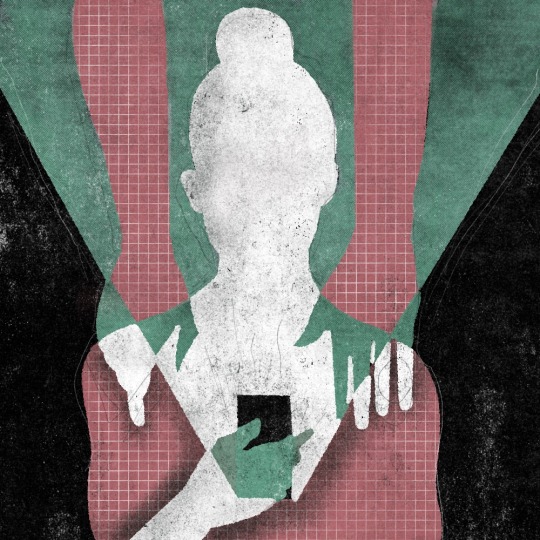
His mother got duped by a man who claimed to love her—so he headed to Nigeria to find the con artist who broke her heart.
The Romance Scammer on My Sofa. The latest incredible true story from The Atavist.
13K notes
·
View notes
Text
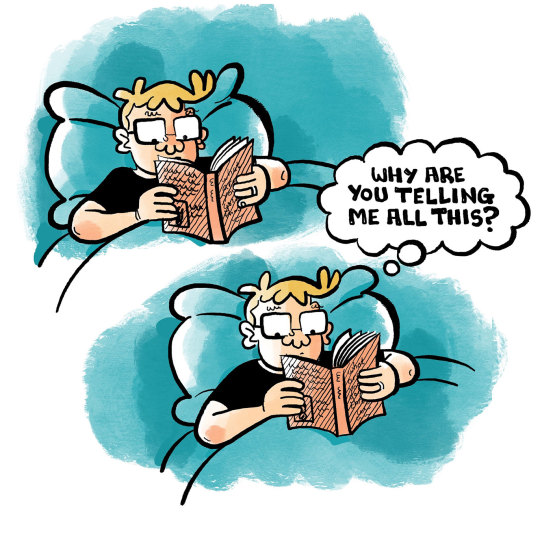
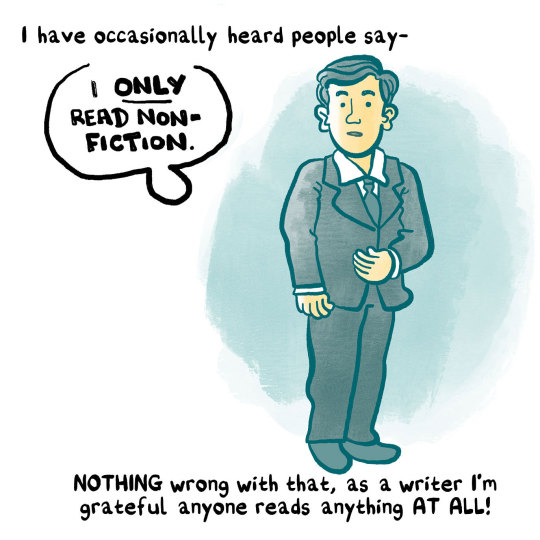
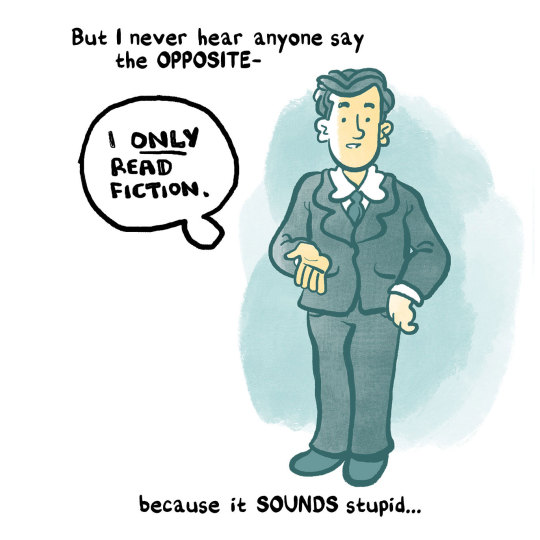
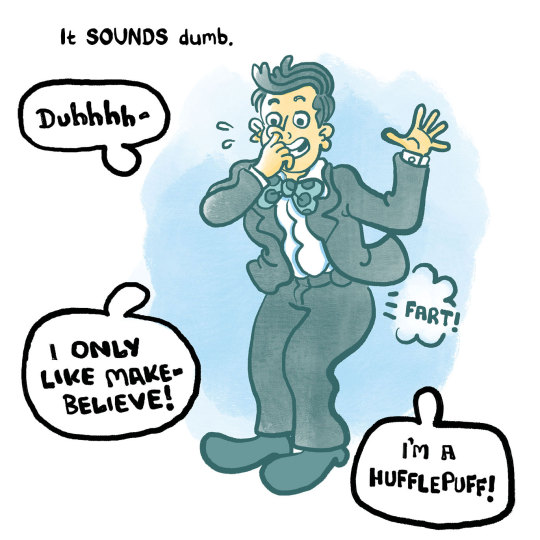
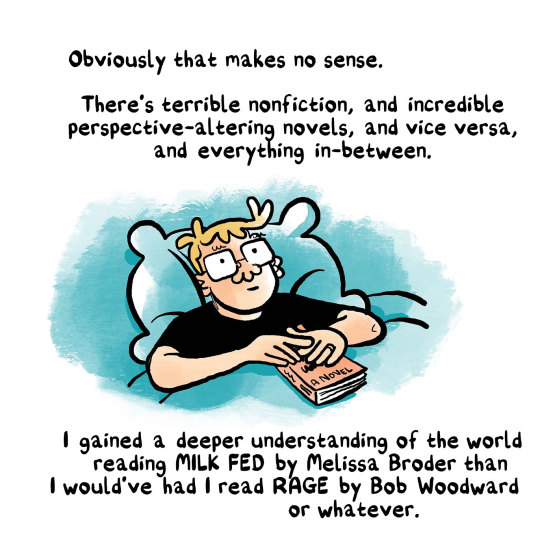
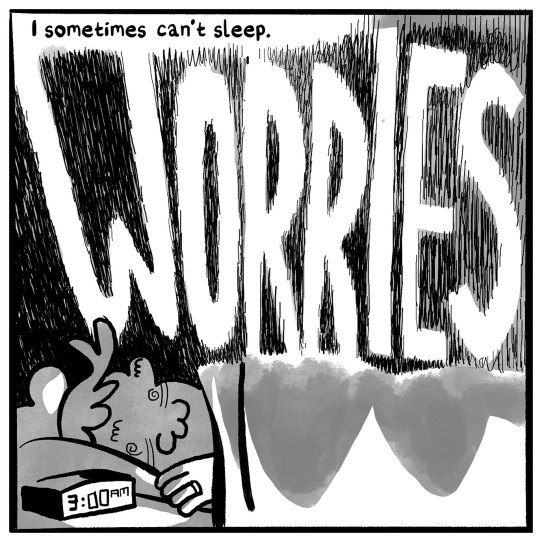
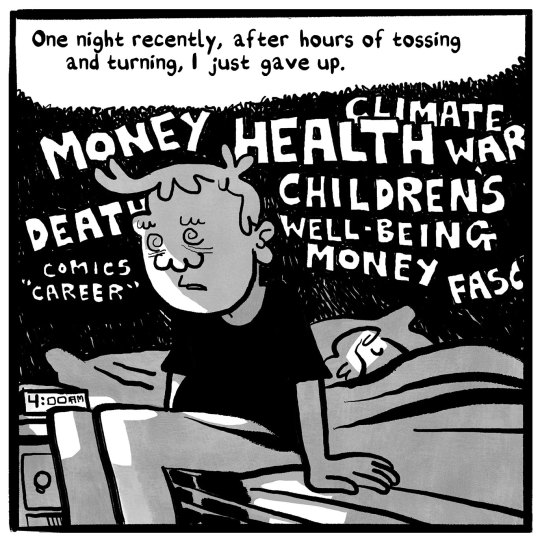
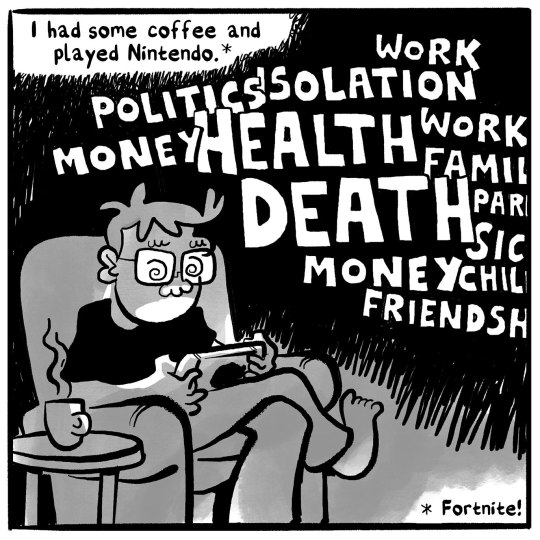
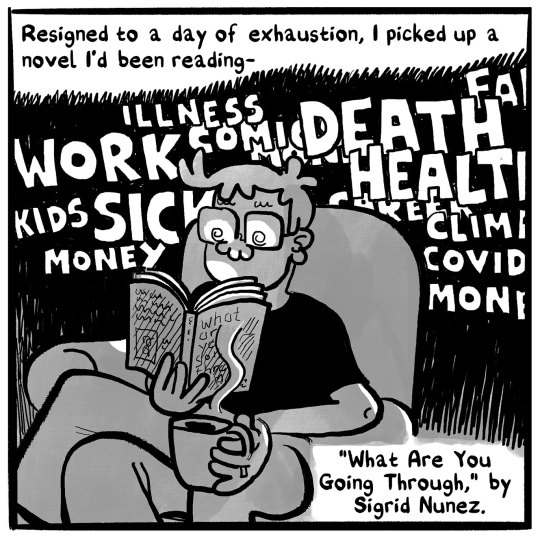

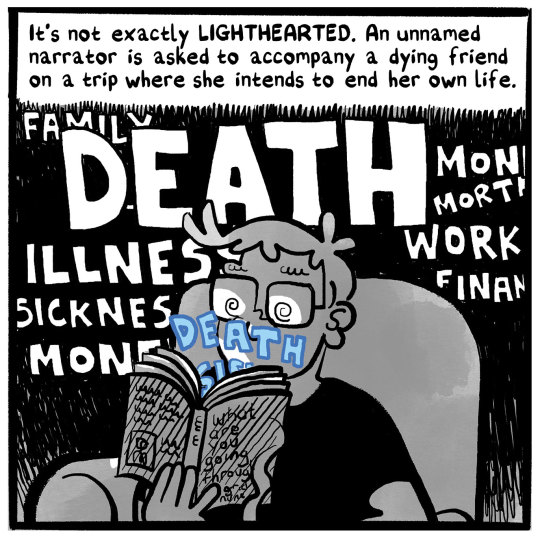
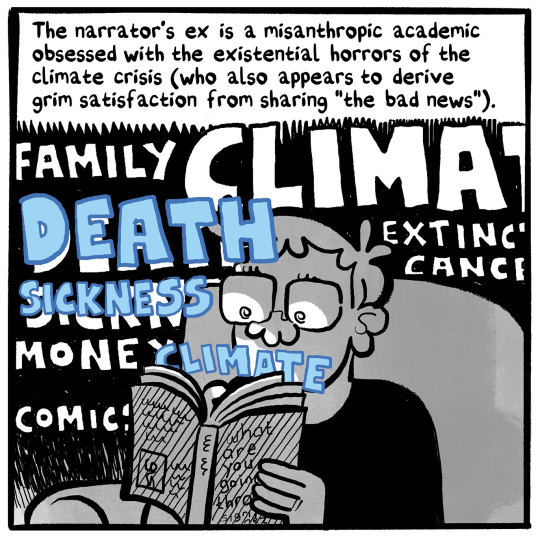
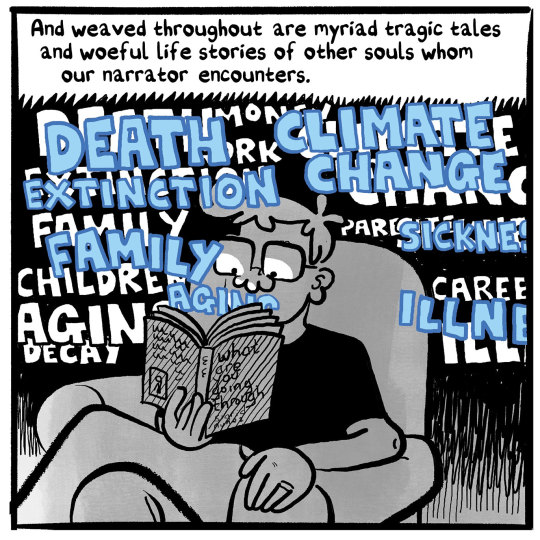
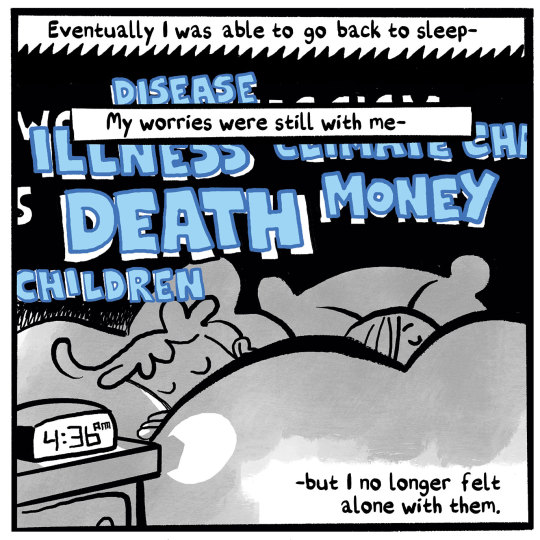
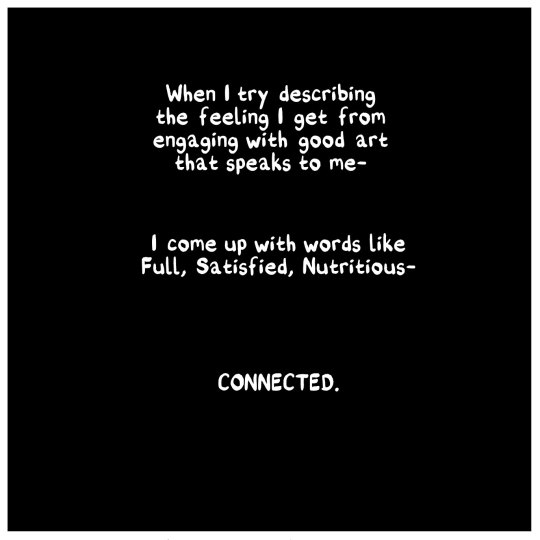
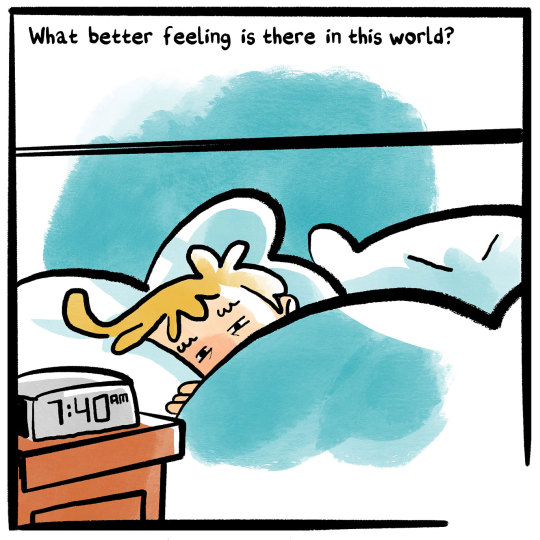
What Are You Going Through
Published in The New York Times Sunday Book Review, 4/2/23
5K notes
·
View notes
Text
I can’t tell you how often I am asked this question by any medical professional. I mention that I’m on testosterone, have been on T for years. This script goes forward even with my endocrinologists.
DOCTOR, with a pinched look on their face: And what about your fertility?
ME: What about my fertility?
DOCTOR: Are you aware that testosterone can make you infertile?
ME: I am, it’s one of the many benefits. I still want a hysterectomy though.
DOCTOR, with an even more pinched look on their face: Have you thought about measures to preserve your fertility?
ME: No, I do not want to be fertile, I do not want to ever be pregnant, and I do not want children. Next question.
The next question is inevitably another question about my fertility, about preserving it, about if I plan to adopt instead — the idea that I don’t want children at all won’t be entertained.
I’ve always hated the way that my desire to one day be pregnant and to have children is treated as an assumed fact of my being — as a child and a teenager, I was incredibly tokophobic, and had nightmares, felt very nauseous, about the matter-of-fact and blustering way that adults around me would regularly tell me that I had no choice in the matter, and that one day I would be pregnant, and it was just a fact of life I had to accept.
The messaging around pregnancy was effectively that it was something I had no choice in, no ability to consent to — I would be made pregnant by the passage of time alone, and I would be forced to carry that pregnancy to term and then parent the children I didn’t want, because that’s just life.
As I grew older, I learned that these are lies.
I don’t have to become pregnant. It’s not a fact of life that will happen to me whether I like it or not. I am not beholden to a mysterious biological clock that will render me mindless and unable to resist.
Read more on Medium.
5K notes
·
View notes
Text


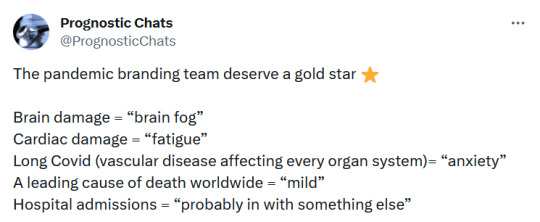
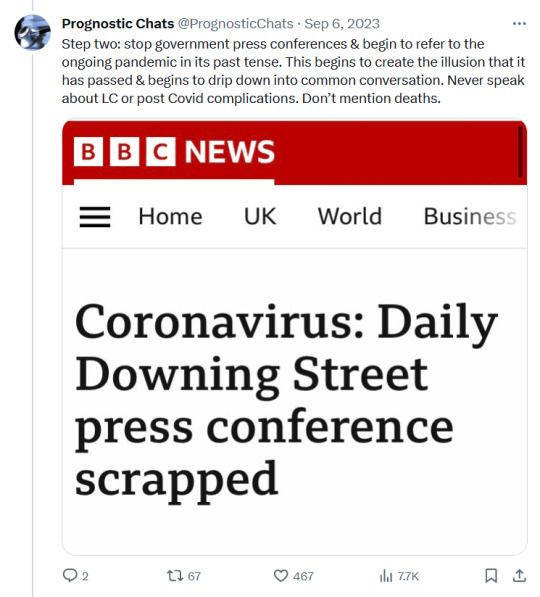


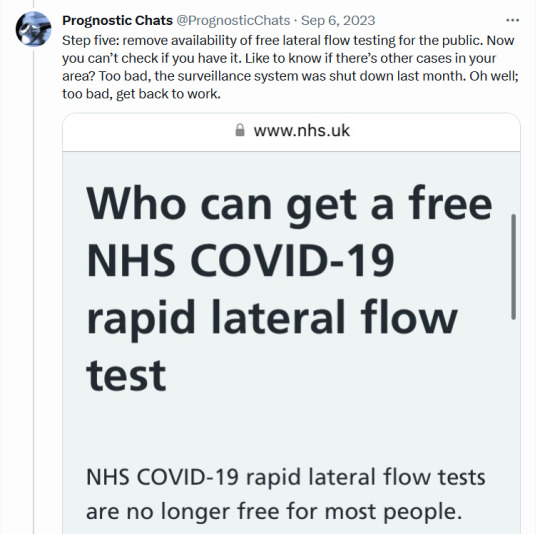


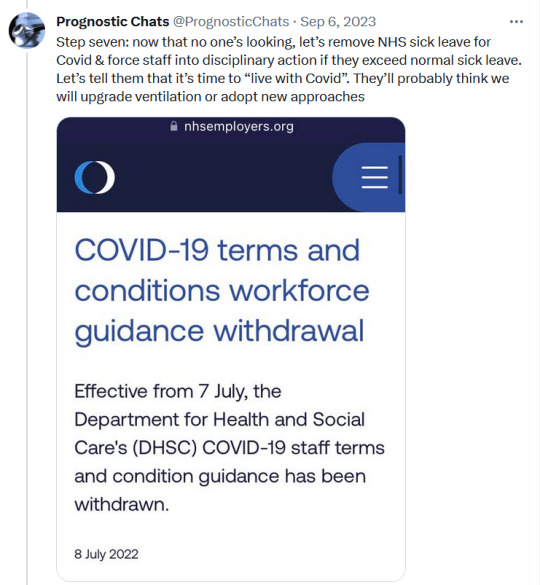


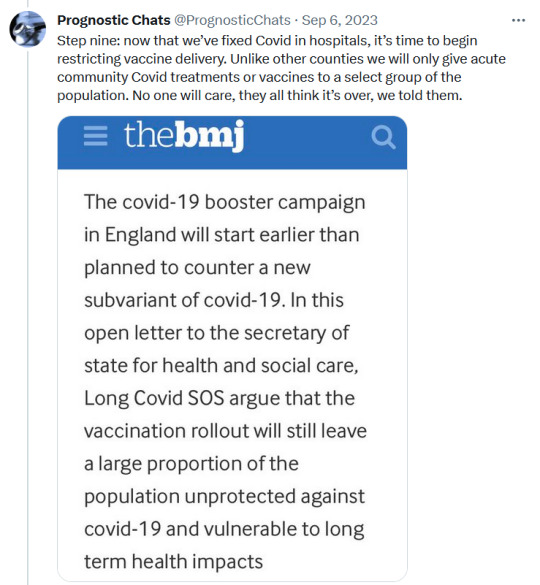
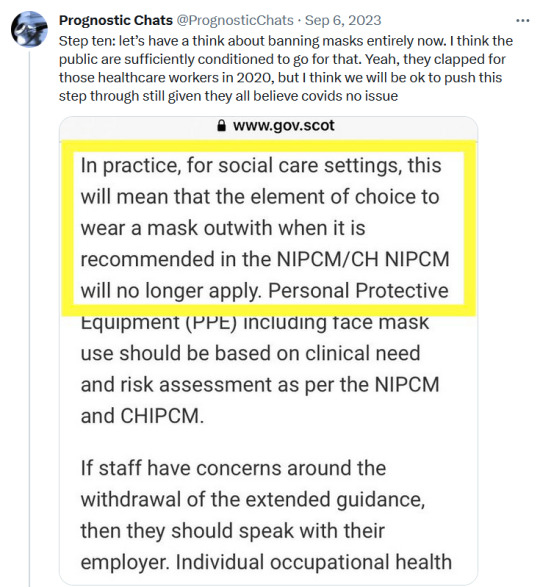
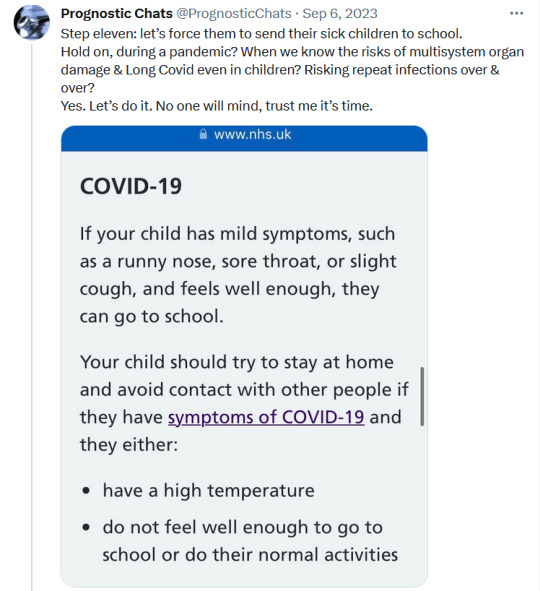

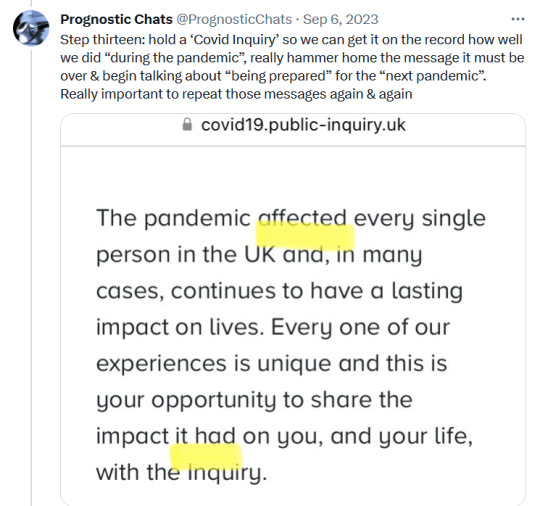


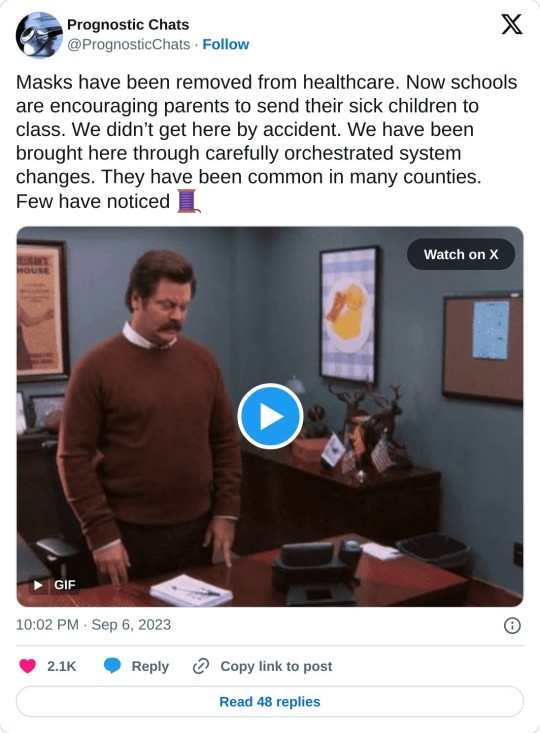
#sars cov 2#covid isnt over#pandemic isnt over#wear a mask#wear a fucking mask#alt text covid#world issues#disability rights#disability justice#important#nonfiction
937 notes
·
View notes
Text
THE BOOK IS A GO!
Transgender History out 2025
Good morning—GOOD NEWS! Going on 2 years ago, I published my article in Scientific American about #transgenger + #hormone history 🗃️🧪🏳️⚧️. I finished the book in Oct, and my editor just wrote to say she loves it and it will publish next winter!
This book almost didn’t happen. It was so hard to write. It *hurt* to write. Watching the news and reading history, it felt the same—rise of fascism and attacks on minorities and LGBTQ. But it’s done, it is written.
THE INTERMEDIARIES tells the story of that science—itself often strange and remarkable—as well as the man, his band of revolutionaries, and the Institute for Sexual Science, both center of the homosexual and trans community and base of operations for the first LGBTQ rights movement of the 20th century.
Sexual and gender nonconformists, what Hirschfeld called the intermediaries, had a right to live, a right to thrive. They also had a right to joy. Science would lead the way, but this history unfolds as an interwar thriller—patients and physicians risking their lives to be seen and heard even as Hitler began his rise to power. They faced abuse, blackmail, and political machinations; they responded with secret publishing campaigns, leaflet drops, pro-homosexual propaganda, and alignments with rebel factions of Berlin’s literati. It’s a story about pioneers. And about hope.
And it all started here:
#transrightarehumanrights#support trans kids#support trans rights#trans day of remembrance#trans#trans woman#trans rights#transgender#transmasc#trans pride#lgbtq representation#lgbtqplus#lgbtq#lgbtqia#lgbtq community#lgbt pride#science#history#nonfiction#trans history#gay rights#gay history#interwar period#wwii history#wwii germany#weimar#hormones#bookblr#booksbooksbooks#new books
1K notes
·
View notes
Text
There is no greater agony than bearing an untold story inside you.
- Maya Angelou, I Know Why the Caged Bird Sings
#quotes#books#literature#lit#classics#academia#light academia#dark academia#chaotic academia#book#book quotes#quotation#Maya Angelou#Memoir#Nonfiction#Biography#Autobiography#I Know Why the Caged Bird Sings
838 notes
·
View notes
Text


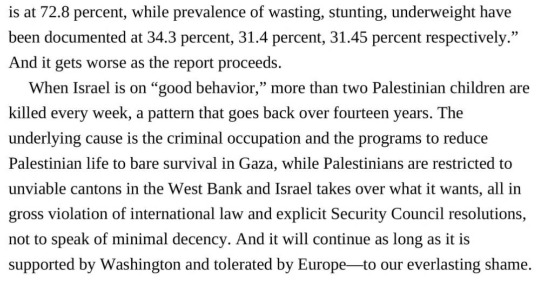
— On Palestine: Noam Chomsky, Ilan Pappé (2015)
#free gaza#gaza#free palestine#On Palestine#Noam Chomsky#Frank Barat#Palestine#Israel#Palestinian rights#free Palestine#free Gaza#politics#atypicalreads#nonfiction#zionism#history#philosophy#political#nsnv#unrwa#statistics#breaking international law
1K notes
·
View notes
Photo

Fresh Meat
"The resistance to women in butchery goes further: we associate butchery with blood and gore, and dealing with blood and gore is not a place for a woman.”
Regular #longreads food writer Olivia Potts is back! Explore how women are breaking into the male-dominated world of butchery in our new feature.
Blood, craft, and sexism. Read it here.
664 notes
·
View notes
Text
I've come across like 3 or 4 Centrist-Guy-Saying-Stuff books now that have a chapter trying to criticize how "the Left" flattens history down into a stereotype where everything Europeans did is UNIQUELY EVIL!!! and they all have the same points
The Ottomans and the Romans had slavery and African nations captured slaves from each other so it's hypocritical to focus on chattel slavery in the USA being particularly evil
Columbus is being "villainized" and the colonization of the Americas was inevitable to happen that way, that's just what happens when a stronger country meets a weaker one
Native Americans waged war on each other/did X gruesome or shocking thing so they're Not As Innocent As The Left Would Have You Believe
and it's like. Buddy. The point isn't to prove that Europeans have a uniquely evil culture or that X thing they did has never happened before in another culture. The reason European nations' actions are so focused on, is that they directly caused a ton of problems we are Currently Dealing With Right Now.
Like yeah, Roman slavery was fucking evil and dehumanizing and full of sexual and physical abuse, but it didn't give us the instructions for who should be dehumanized and demeaned that our society is STILL FOLLOWING
721 notes
·
View notes
Text
What does “thinking of you” mean? It means: forgetting “you” (without forgetting, life itself is not possible) and frequently waking out of that forgetfulness.
Roland Barthes, A Lover's Discourse: Fragments (translated by Richard Howard)
442 notes
·
View notes
Photo

His mother got duped by a man who claimed to love her—so he headed to Nigeria to find the con artist who broke her heart. A rare look inside the world of the so-called Yahoo Boys.
The Romance Scammer on My Sofa. The latest incredible true story from The Atavist.
8K notes
·
View notes